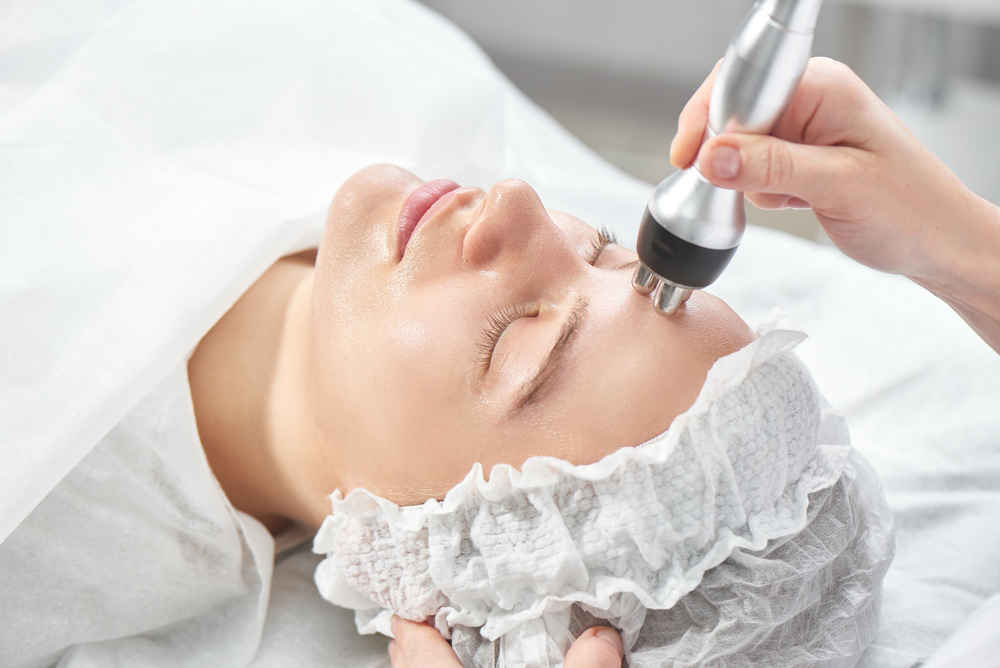How to Take Care of Dry Skin in Winter
By CosMed Clinic, Dermatologist Dr. Alberto de la Fuente

Protect your skin by dressing in layers. The most common triggers of the scratch/itch cycle are sweating and overheating. Wearing layers allows you to remove clothing as needed to prevent overheating.
For many people, the cold clear days of winter bring more than just a rosy glow to the cheeks. They also bring uncomfortable dryness to the skin of the face, hands, and feet. For some people, the problem is worse than just a general tight, dry feeling. The low humidity, common in many parts of the United States and Northern Mexico during winter can cause dry, irritated skin. When skin becomes dry and irritated, eczema can flare. Here are the 101 winter skin care tips that I would like to share in order to help your skin feel more comfortable, and also to easily prevent skin issues:
1. Seek a specialist: If you go to your local drugstore, you’ll be hard put to find a salesperson who can give you good advice. That’s why going to a dermatologist even once is a good investment. Such a specialist can analyze your skin type, troubleshoot your current skin care regimen, and give you advice on the skin care products you should be using.
2. Use a humidifier: With the heat on and the windows closed, the air inside can become very dry in the winter, making the dryness and itching of eczema even worse. Use a humidifier to place moisture in the air. Placing two or three of these around your home will help to humidify the dry air. This can keep skin from drying and becoming cracked and itchy.
3. Switch to an oil-based moisturizer and moisturize frequently: You may have found a moisturizer that works just fine in spring and summer. But as weather conditions change, so, too, should your skin care routine. I recommend to find an “ointment” moisturizer that’s oil-based, rather than water-based, as the oil will create a protective layer on the skin that retains more moisture than a cream or lotion. (Hint: Many lotions labeled as “night creams” are oil-based.) But choose your oils with care because not all oils are appropriate for the face. Instead, look for “nonclogging” oils, like avocado oil, mineral oil, primrose oil, or almond oil. You can also look for lotions containing “humectants,” a class of substances (including glycerine, sorbitol, and low concentration alpha-hydroxy acids) that attract moisture to your skin. Ointments should not be used on areas of the body that tend to get hot and sweaty. Remember to moisturize your skin immediately after washing:
• For your body that means after the bath or shower.
• For your face that usually means morning and night.
• For your hands that means many times during the day.
• For your lips it means coating them throughout the day with a hydrating lip balm, especially when you’re outdoors or in hot, dry, indoor air.
4. Sunscreen all year long: No, sunscreen isn’t just for summertime. Winter sun, combined with snow glare, can still damage your skin. Try applying a broad-spectrum SPF30+ sunscreen to your face and your hands (if they’re exposed) about 20-30 minutes before going outside. Don’t forget your ears and lips too! Reapply frequently if you stay outside a long time. Sunscreen is important in winter as the sun’s reflective powers are great year round (17% on the sand and 80% on the snow). Today, several products are available that combine oily, moisturizing cream with sunscreen. If you are unsure of which product to use, ask a dermatologist.
5. Before Going Outside in Winter: Don’t forget your gloves. Protecting hands from the cold air and low humidity plays an important role in preventing flare-ups. Make sure the gloves are made from material that does not irritate your skin. Some patients find that wearing a cotton mitten next to the skin and a woolen mitten over the cotton one, keeps hands warm and without the risk of irritation.
6. Dress in layers: The most common triggers of the scratch/itch cycle are sweating and overheating. Wearing layers allows you to remove clothing as needed to prevent overheating. Be sure to wear loose-fitting cotton fabrics next to your skin.
7. Shed wet clothes and shoes immediately: These can irritate the skin and cause a flare-up of eczema or even fungal infections.
8. Grease up your feet: Yes, those minty foot lotions are lovely in the hot summer months, but during the winter, your feet need stronger stuff. Try finding lotions that contain petroleum jelly or glycerine instead. And use exfoliants to get the dead skin off periodically; that helps any moisturizers you use to sink in faster and deeper.
9. Pace the facials/masks : If your facial skin is uncomfortably dry, avoid using harsh peels, masks, and alcohol-based toners or astringents, all of which can strip vital oil from your skin. Instead, find a cleansing milk or mild foaming cleanser, a toner with no alcohol, and masks that are “deeply hydrating,” rather than clay-based, which tends to draw moisture out of the face. And use them a little less often. I recommend using a mild/sensitive skin cleanser for the face, saving the soap from the neck below.
10. Avoid hot baths: Sure, soaking in a burning-hot bath feels great after frolicking out in the cold. But the intense heat of a hot shower or bath actually breaks down the lipid barriers in the skin, which can lead to a loss of moisture. You’re better off with just warm water and staying in the water a shorter amount of time, with showers lasting no more than 10 minutes.
We hope that you find these simple tips as the best holiday gift for your skin. Now you can ask your skincare questions directly on our CosMed Clinic Facebook page. For more private questions or to schedule a consultation with CosMed Clinic’s dermatologist Dr. Alberto de la Fuente, please visit www.CosMedClinic.com. Dr de la Fuente can check your skin and recommend the most appropriate treatment for you and your skin with the most renowned dermatological skin care products.




